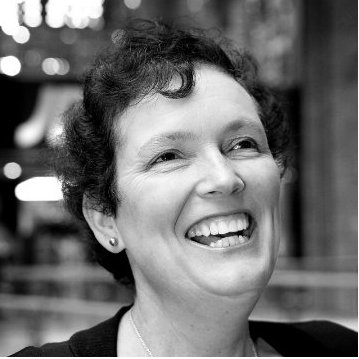Episode 4
November 3rd – 5th 2020
Summer break and the tightest cluster of events and Groundbreakers Tours are over and it’s time to get going again. Episode 4 of ACEs@home is on track and getting the final touches applied.
This newest installment of the successful event series will again be covering multiple topics across several day. The format has been slightly adjusted to fit the return to more normal business hours for most of our audience and speakers.
Sponsored by Schaltstelle
Schaltstelle helps you so solve your IT and communication challenges. As a co-business, the 21 members of Schaltstelle offer their services independently with a wide range of skills – from communications to web-engineering and design, backend development to database engineering. Independent of the size of the challenge, Schaltstelle members find the most durable solution for their customers. Schaltstelle is based in Bern, Switzerland, with a unique organizational style. No management rules over the company. The company organization, as well as decisions, are made by all the members together. They are taking the concept of co-working and implement it as a co-business.
https://www.schaltstelle.ch
Tuesday, Nov. 3rd
Apps
13:00-17:20 CET
(07:00-11:20 EST)
| 13:10 | Johannes Michler  |
Extending E-Business Suite using Oracle APEX |
| 14:10 | Debra Lilley  |
PaaS4SaaS - Extending Your SaaS Applications |
| 15:20 | Gustavo Gonzalez  |
What are the differences between OBIA, EPM, OTBI, and the new Oracle Fusion Analytics (FAW)? |
| 16:20 | Mia Urman  |
Stories from the Trenches: How We Used Digital Assistants to Kickstart Our Back-office Transformation |
Wednesday, Nov. 4th
Infrastructure
14:00-17:20 CET
(08:00-11:20 EST)
| 14:10 | Fernando Simon  |
Everything you need to know about ZDLRA |
| 15:10 | Martin Bach  |
Terraforming the Cloud |
| 16:20 | Julian Frey  |
Don't die in the thunderstorms |
Thursday, Nov. 5th
Meet the Product Managers
14:00-17:20 CET
(08:00-11:20 EST)
| 14:10 | Pieter van Puymbroek  |
How to get the most from your Oracle Active Data Guard environment |
| 15:10 | Nigel Bayliss  |
What can we learn from how the Oracle Autonomous Database auto-repairs SQL performance regressions? |
| 16:20 | Kris Rice  |
All things ORDS |
Sessions details, recordings and slides
Kris Rice: Oracle All things ORDS
ORDS has been growing in features and now offers many services including now being the only supported web listener for APEX 20.2+. SQL Developer Web now includes a full REST Workshop for development of any REST apis leveraging existing sql and plsql. There’s also a DB API which can perform tasks from creating a database to getting data pumps. This session will be an overview of the many features inside ORDS and will include some options for deployment in a HA setup.
Speaker: Kris Rice
Title: “Oracle All things ORDS”
Presented on: Thursday, November 5th 2020
Nigel Bayliss: What can we learn from how the Oracle Autonomous Database auto-repairs SQL performance regressions?
The Oracle Autonomous Database includes mechanisms to resolve SQL performance regressions quickly without manual intervention. For those of us using and upgrading databases in the non-autonomous world, what lessons can we learn and what features can we use?
Speaker: Nigel Bayliss
Title: “What can we learn from how the Oracle Autonomous Database auto-repairs SQL performance regressions?”
Presented on: Thursday, November 5th 2020
Slides:
Pieter van Puymbroek: Oracle How to get the most from your Oracle Active Data Guard environment
Oracle Data Guard and Oracle Active Data Guard have long been the answer for the real-time protection, availability, and usability of Oracle data. Attend this session to get an in-depth look at several key new features that will make your life easier and protect your data in new and more flexible ways. Learn how Oracle Active Data Guard 19c has been integrated with Oracle Database In-Memory and offers a faster application response after a role transition. See how DML can now be redirected from an Oracle Active Data Guard standby to its primary for more flexible data protection in today’s data centers or your data clouds. Leave this technical session with a glimpse of upcoming new features.
Speaker: Pieter van Puymbroek
Title: “Oracle How to get the most from your Oracle Active Data Guard environment”
Presented on: Thursday, November 5th 2020
Julian Frey: Don’t die in the thunderstorms
With the possibilities of a cloud solution there are also many opportunities to get into trouble. To use the possibilities of a cloud and to simplify your life it is important to automate. Otherwise you will die in solving problems that you would not have without the cloud. One way to automate the Oracle Cloud is to use Ansible. In this presentation this way is shown from the ground up and demonstrated.
Speaker: Julian Frey
Title: “Don’t die in the thunderstorms”
Presented on: Wednesday, November 4th 2020
Martin Bach: Terraforming the Cloud
Moving to the cloud provides a great opportunity to standardise infrastructure deployments. The most reliable way to standardise probably is to automate it all. There are multiple tools out offering their services.
One of the more popular ones is certainly Terraform. But how does it work, what can it do, and how do you use it best? An informed opinion is always preferable to relying on vendor white papers, and this is what the session aims at providing. After a brief introduction to Terraform you will see examples deploying network, storage, and virtual machines into the Oracle cloud using just a few keystrokes. Its declarative language allows users to make changes to the infrastructure without first tearing it all down. Using Terraform is an incredibly flexible way to restore order in the chaos that is an infrastructure deployment with historical roots, and hardly anyone would deny the benefit of standardised environments.
At the end of this presentation attendees should have a better understanding of the capabilities of the Terraform for deploying infrastructure into the cloud.
Speaker: Martin Bach
Title: “Terraforming the Cloud”
Presented on: Wednesday, November 4th 2020
Fernando Simon: Everything you need to know about ZDLRA
Zero Data Loss Recovery Appliance (ZDLRA) is an Oracle Engineered System that was built to protect your databases for several kinds of outages. But it can be complicated to understand it and what it can deliver. So, let’s see what it is and how ZDLRA works, including internal details. This presentation covers the details from ZDLRA features like Incremental Forever strategy and the Virtual Full Backup, Real-Time Redo transport to zero RPO, Multi ZDLRA Replication, and others. But besides that, you can see “under the hood”: The internal details and how ZDLRA read and de/reconstruct the ingested backup to generate the internal index.
Speaker: Fernando Simon
Title: “Everything you need to know about ZDLRA”
Presented on: Wednesday, November 4th 2020
Slides:
Mia Urman: Stories from the Trenches – How We Used Digital Assistants to Kickstart Our Back-office Transformation
Does it sometimes feel like everyone is modernizing but you? Do you wonder if there is any way forward with your Oracle EBS / Forms back-office on-premises applications? You will learn about Oracle’s Digital Assistant Cloud and how it can help take your back-office applications from a “challenge” into a major player in your digital transformation strategy. We will show a live demo of building a Digital Assistant and a customer story of how they were used to extend existing applications into the field.
Speaker: Mia Urman
Title: “Stories from the Trenches: How We Used Digital Assistants to Kickstart Our Back-office Transformation”
Presented on: Tuesday, November 3rd 2020
Gustavo Gonzalez: What are the differences between OBIA, EPM, OTBI, and the new Oracle Fusion Analytics (FAW)?
Oracle ERP Analytics from the FAW portfolio that maximizes the value of ERP Cloud data by turning finance data into actionable insights.
Empowers finance users to monitor business performance with pre-built or custom key performance indicators (KPIs)
It is adaptable to combine ERP Cloud Data with data from other sources to enable cross-functional insight and a single trusted view of the enterprise.
We’ll go through some of the key aspects of FAW which is powered by ADW and OAC such as:
– No database design, tuning, ETL, modeling, etc.
– Ready-to-use dashboards, reports, KPIs
– Fully extensible & customizable
We will explore some capabilities and differences between OTBI, EPM and FAW and why a combination provides a complete finance analytic solution.
A final review on implementation aspects for security, extensibility and deployment.
Speaker: Gustavo Gonzalez
Title: “What are the differences between OBIA, EPM, OTBI, and the new Oracle Fusion Analytics (FAW)?”
Presented on: Tuesday, November 3rd 2020
Debra Lilley: PaaS4SaaS – Extending Your SaaS Applications
Oracle’s Cloud Applications take away the need for a data centre but what happens if you need an extension that cannot be done at SaaS level? The good thing is that Fusion Architecture Principles means extensions are not a customization as we are used to, but something that sits alongside and integrated in the same way as co-existence with traditional apps. This session looks at a Proof of Concept, proving your systems integrator can become an ISV adding value to Cloud Applications and also gives the customer the same UX as with Oracle’s Cloud Apps.
Speaker: Debra Lilley
Title: “PaaS4SaaS – Extending Your SaaS Applications”
Presented on: Tuesday, November 3rd 2020
Slides:
Johannes Michler: Extending E-Business Suite using Oracle APEX
Oracle Application Express allows you to easily build and publish powerful solutions for both mobile and desktop devices. With Forms disappearing from E-Business Suite and OAF having never found wide adoption with Forms/PLSQL-Developers, APEX is a natural choice for developing new customizations for Oracle EBS – especially since Oracle APEX is available at no additional licensing costs. When done correctly, it not only provides Single Sign-On (SSO), but also Progressive Web Apps (PWA) that allow access from any device can be quickly created! The session will provide an overview on APEX and then cover SSO and PWA in detail using an example.
Speaker: Johannes Michler
Title: “Extending E-Business Suite using Oracle APEX”
Presented on: Tuesday, November 3rd 2020
Slides:












